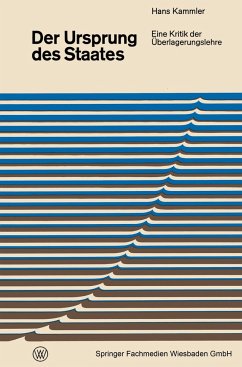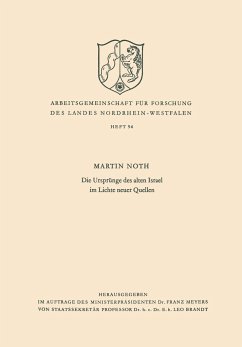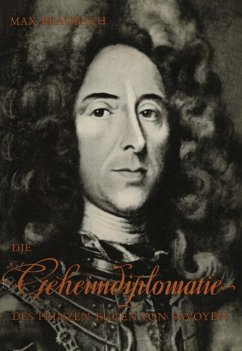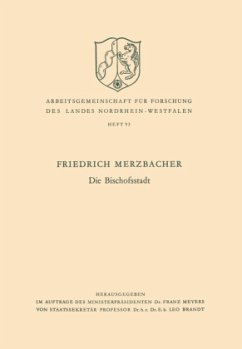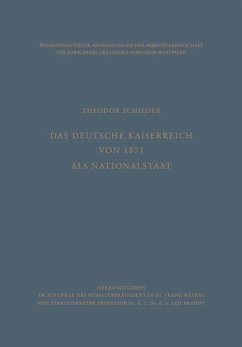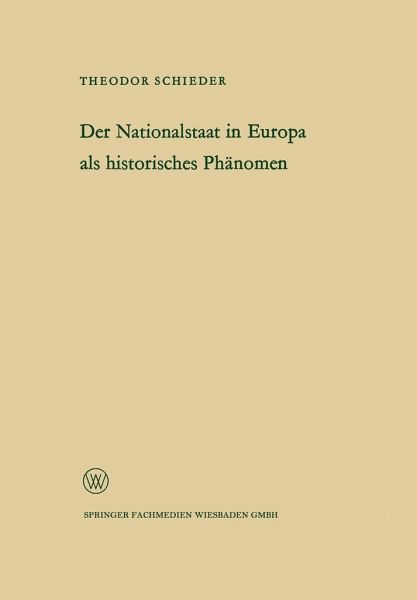
Ansprache des Ministerpräsidenten Dr. Franz Meyers. Der Nationalstaat in Europa als historisches Phänomen

PAYBACK Punkte
0 °P sammeln!
The lecture makes initial references to the European nation-state as an historie phenomenon. An attempt must be made today to examine from comparative aspects the general wealth of ideas and thoughts of the nation states in Europe, their common ways and means, their special symbols, but also the different phases of their common history. The nationalization of modern Europe, which replaced all other forms of government with the nationally sovereign state, passed through three major stages, and these three stages constituted not only a temporal sequence, but they also gave birth to nation-states...
The lecture makes initial references to the European nation-state as an historie phenomenon. An attempt must be made today to examine from comparative aspects the general wealth of ideas and thoughts of the nation states in Europe, their common ways and means, their special symbols, but also the different phases of their common history. The nationalization of modern Europe, which replaced all other forms of government with the nationally sovereign state, passed through three major stages, and these three stages constituted not only a temporal sequence, but they also gave birth to nation-states of varying types. In the first stage, the modern nation was formed in England and France as a citizens' community within an existing state by means of an internal state revolution, based on specific political values and the will of the people. The second phase gave rise to nation-states formed from divided parts of nations; this was the hour of the movements for national unity in Germany and Italy. In the third phase, in which history has pushed forward from Western Europe across Central Europe into Eastern Europe, anational consciousness has developed in the large supra national monarchies against the state and the national state in the process of formation is based on secession. Thus, in this area, all nation-states came into being by breaking away from large empires. All of Europe is affected by each of these stages, thus the three-stage process of the nation-state movement retains its universal character.





